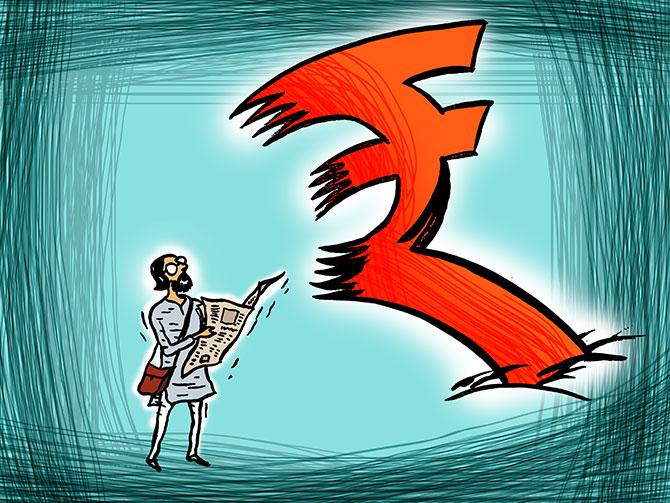 | « Back to article | Print this article |
Dividend distribution tax in FY20 would only be applicable after deducting Rs 70 received from the foreign subsidiary, meaning 20.56 per cent DDT would be paid only on Rs 30.

The rewriting of dividend taxation rules may have an impact on dividends received from the foreign subsidiaries of domestic companies.
Easier rules of taxation applicable earlier have changed, potentially leading to double taxation on the amount received from foreign subsidiaries and distributed by their parent companies to shareholders, according to experts.
Dividends received by Indian companies from foreign subsidiaries have been subject to a concessional tax rate of 15 per cent, said Pranav Sayta, national leader, International Tax and Transaction Services, EY India.
When the parent firm further paid out dividends to its shareholders, dividend distribution tax only applied to that amount and excluded the dividend from the foreign subsidiary.
This avoided double taxation.
For example, consider a parent company which received Rs 70 from its foreign subsidiary and paid out Rs 100 in dividends.
Dividend distribution tax in FY20 would only be applicable after deducting Rs 70 received from the foreign subsidiary, meaning 20.56 per cent DDT would be paid only on Rs 30.
Only shareholders earning dividend of over Rs 10 lakh a year would pay an additional 10 per cent tax in FY20.
“Now all of that is gone,” Sayta said.
Under the new rules, the dividend on the entire Rs 100 would be taxable at the marginal rate for the parent firm's shareholders.
Some of its shareholders in the highest tax bracket would end up paying a tax of 42.7 per cent.
This would involve the dividend being taxed twice.
Tushar Sachade, partner-tax and regulatory services, PricewaterhouseCoopers, too, pointed out that there was a kind of cascading credit, provided for dividends paid by Indian companies, which took into account dividends received from foreign subsidiaries.
Dividends from a foreign subsidiary were taxed at 15 per cent, however, if the parent were to pay dividends, it was not required to pay DDT (on foreign dividends).
"Now in case of a foreign subsidiary, there is double taxation. If the Indian parent receives dividend, it pays tax when it declares dividend; the recipient also pays tax," he said.
Indian companies have made several foreign acquisitions over the years.
For example, Aditya Birla Group's metal sector major Hindalco Industries acquired global aluminium player Novelis in 2007.
Similarly, Tata Steel acquired UK-based Corus in 2007.
Any dividends received from such acquisitions would potentially be subject to higher taxes.
Tata Steel’s operations outside India many a time have not been in a position to pay dividends.
Hindalco, too, is not looking to return capital at this point, according to a source.
“We have not taken any dividend from Novelis for several years.
"In any case, we do not look at Novelis as a subsidiary which is (at a stage) to give us dividends.
"We want to simply grow the company. But going ahead, if we take dividends from Novelis and if that situation arises, we will study the tax implications,” said the source.
Spokespersons for the companies mentioned above did not respond immediately to a request for comment on the new tax rules.
The removal of DDT, announced in the Budget, was seen as a positive by some quarters as it ensured that foreign shareholders could get credit for taxes paid on dividends.
This also means that companies no longer have the compliance burden of deducting the tax.
Tax is now to be paid by the recipient at the applicable rate, instead of the flat DDT rate of 20.56 per cent.